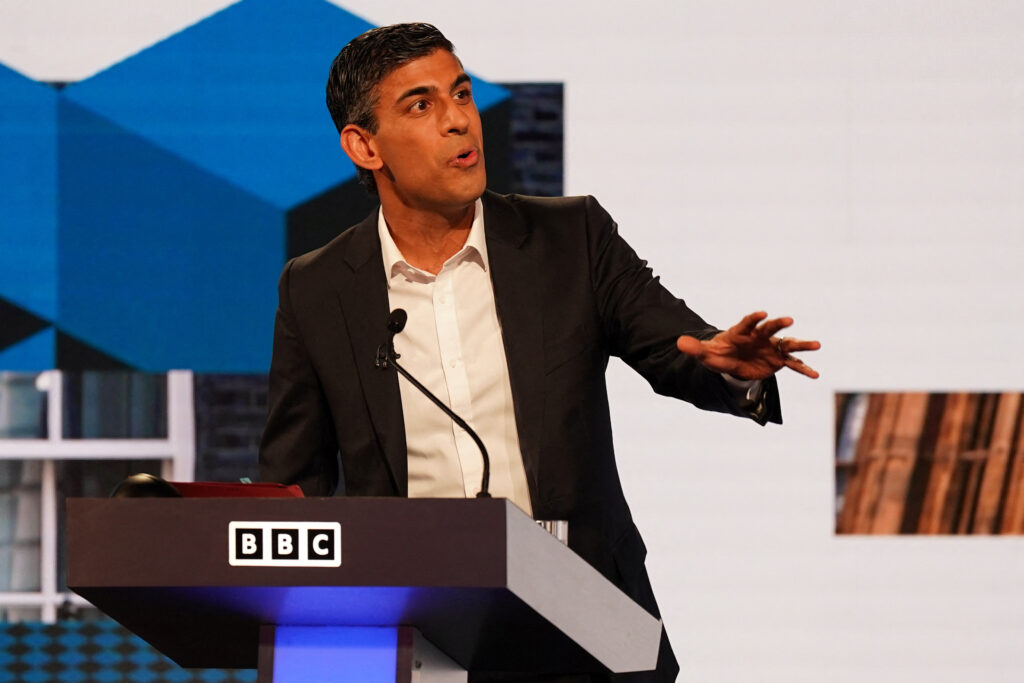Rishi Sunak, trailing in the race to become Britain’s next prime minister, pledged on Wednesday to temporarily scrap taxes on energy bills paid by households as part of a “winter plan” to ease the cost-of-living crisis.
The year-long hiatus on paying value-added tax (VAT) on energy bills would save the average household 160 pounds ($193), former finance minister Sunak said.
The pledge marks a change of tack for Sunak, who has repeatedly emphasised the need to restore discipline to Britain’s public finances.
Three months ago as finance minister, Sunak had ruled out cutting VAT on energy bills because it would not be a big help to families. On Wednesday, his team said it was the “centrepiece” of his winter plan.
“This temporary and targeted tax cut will get people the support they need whilst also – critically – bearing down on price pressures,” Sunak said.
Sunak’s resignation from the cabinet earlier this month helped trigger a revolt that saw Prime Minister Boris Johnson agree to step down after a series of scandals. Members of the ruling Conservative Party will vote for a successor over the summer, with an announcement due on Sept. 5.
Foreign Secretary Liz Truss, the bookmakers’ favourite to succeed Prime Minister Boris Johnson, has outlined a wider range of tax cuts that Sunak has branded irresponsible.
Truss, who last week held a 24-point lead over Sunak among Conservative Party members according to YouGov, has repeatedly warned that Sunak’s plans will tip Britain into recession.
Whoever triumphs when the result is announced will inherit some of the most difficult conditions in Britain in decades. Inflation is on course to hit 11% annually, growth is stalling, and industrial action is on the rise.
The Resolution Foundation think tank, which focuses on living standards, has previously described the idea of cutting VAT on energy bills as poorly targetted and of “tiny” benefit in comparison to the huge increase in costs.
“I’m very pleased actually that he’s now done a bit of a U-turn — a screeching handbrake turn — on VAT, on energy bills,” business minister Kwasi Kwarteng, a Truss supporter, said in reference to Sunak.
Pollster Chris Curtis from Opinium Research said Sunak had diluted his message of fiscal conservatism with Wednesday’s announcement.
“I don’t think it’ll work particularly well for Rishi Sunak. I think he has created a rod for his own back here,” Curtis told Sky News.


